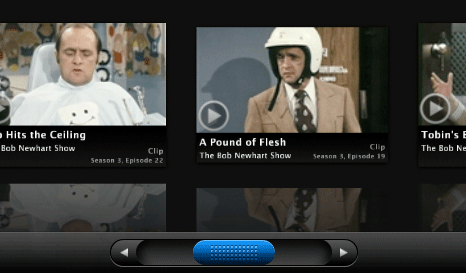I’m still having trouble keeping solid food down after having been exposed to the Internet Explorer 8 ad that involves a woman projectile-vomiting after accidentally seeing a site her husband had been viewing. But I’m moving on from being appalled to trying to answer an important question: Is it the single worst commercial for a technology product ever?
Until now, this 1980s spot from Commodore Australia would have been my nominee for that honor:
But looking at it again–hey, it’s not bad. Yes, it’s cheesy–it feels like a Mentos commercial from a time before there were Mentos commercials. Yes, the combination of the notion of “Keeping up with the Commodore” and people smiling vacantly and making cryptic signs makes me wonder if some forgotten cult is involved. But at least it’s all cheery, and the song is so infectious that it’s now stuck in my head, which helps to block out the IE 8 ad.
Another plus: Nobody in it projectile-vomits.
Speaking of vomiting, it’s worth noting that the Microsoft ad isn’t the first one for a Web-related enterprise that involves spitting up. The E*TRADE baby tosses his cookies in this commercial, though in a more dignified, less forceful manner–and hey, he’s a baby:
That’s a bad ad, but not bad enough to rival the IE one.
Anyhow, the Internet Explorer 8 is revolting on multiple levels; it demeans both Internet Explorer and its users; it doesn’t even provide a terribly compelling argument for choosing IE, since private browsing is a standard feature in most modern browsers. It’s the first ad from Microsoft or any other major tech company I can think of that can accurately be described by the word fetid.
In short, it’s my new candidate for worst tech product ad of all time. Any other nominees?
[UPDATE: Microsoft has pulled the ad. Sorry, vomit-lovers…]

 Writing about Firefox 3.5 got me wondering: What’s the breakdown of browser usage on Technologizer right now? So I looked it up, courtesy of Google Analytics.
Writing about Firefox 3.5 got me wondering: What’s the breakdown of browser usage on Technologizer right now? So I looked it up, courtesy of Google Analytics. Was it really fewer than five years ago that Firefox 1.0 debuted? Its arrival ended the dismal period in which only one browser–Microsoft’s mediocre Internet Explorer–seemed to be viable. With Firefox, Mozilla proved that millions of people were itching to adopt a better browser. And today, we find ourselves with multiple better browsers: Not just Firefox, but also Google’s minimalist
Was it really fewer than five years ago that Firefox 1.0 debuted? Its arrival ended the dismal period in which only one browser–Microsoft’s mediocre Internet Explorer–seemed to be viable. With Firefox, Mozilla proved that millions of people were itching to adopt a better browser. And today, we find ourselves with multiple better browsers: Not just Firefox, but also Google’s minimalist 


 Boy, Opera sure has turned the hype knob to 11 for its Unite technology, which
Boy, Opera sure has turned the hype knob to 11 for its Unite technology, which  There was a time when I called
There was a time when I called